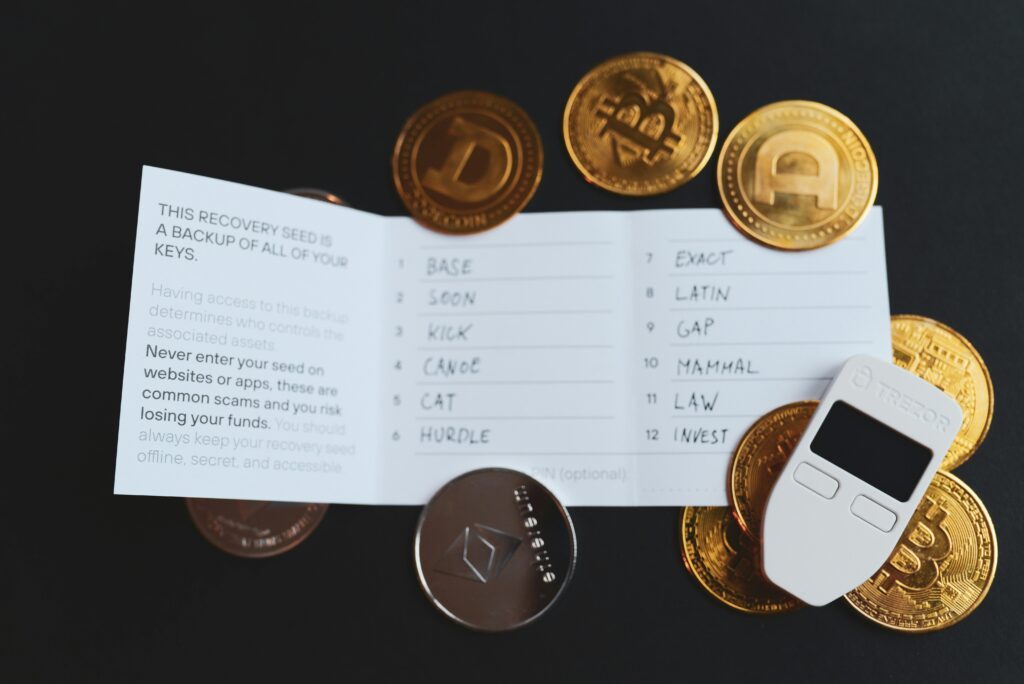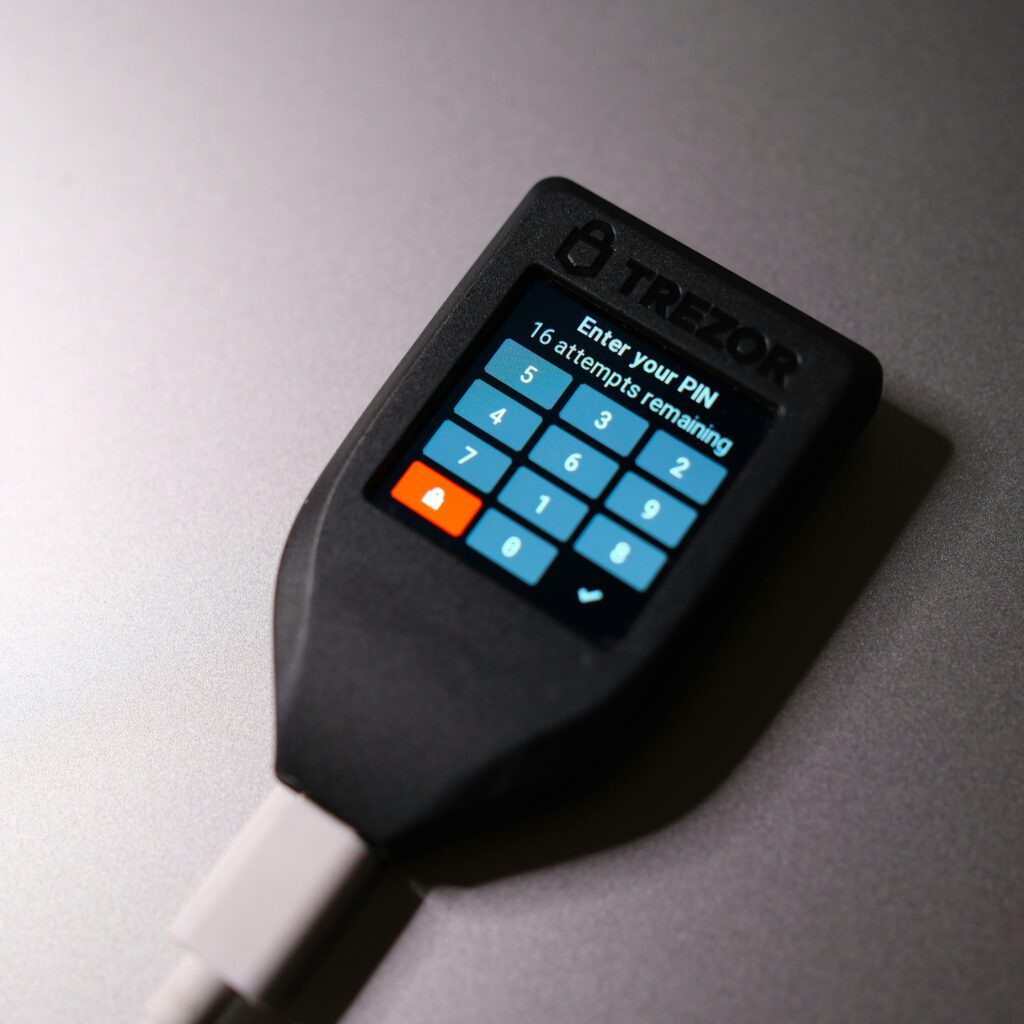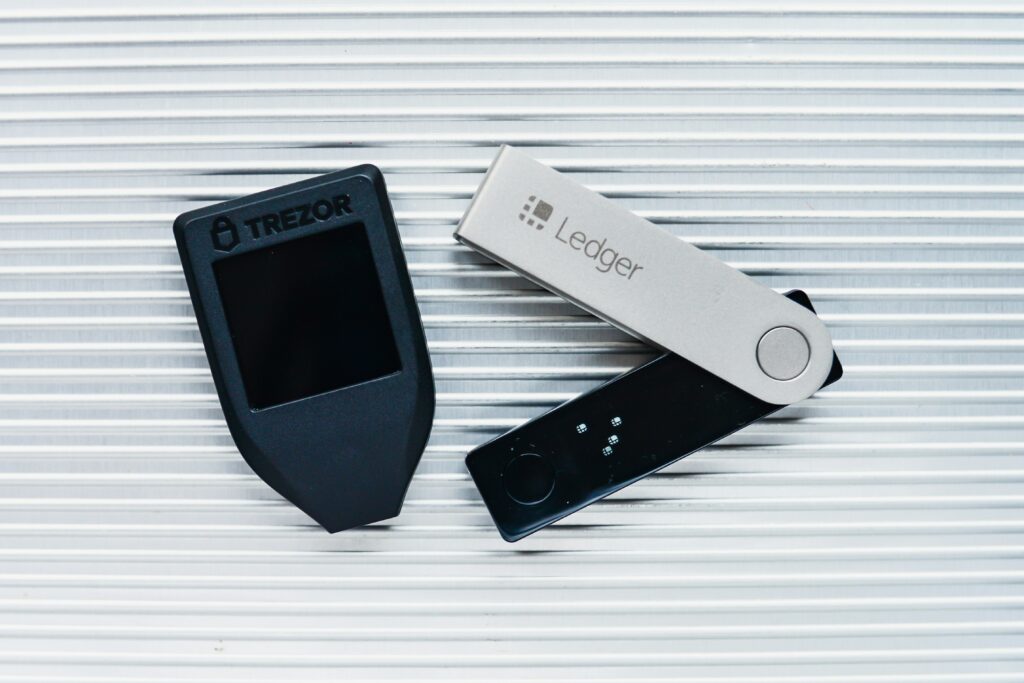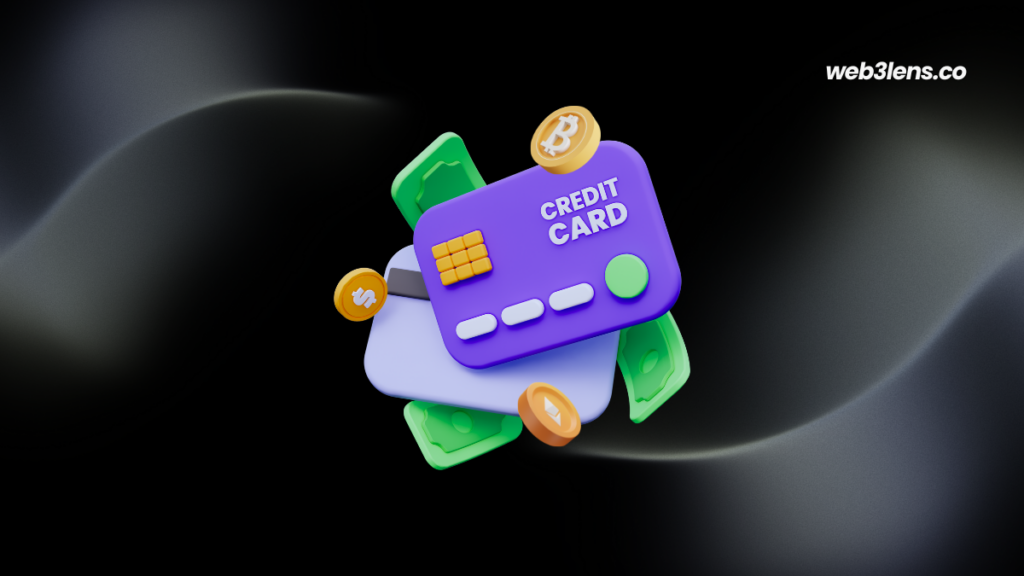
Introduction to cold storage wallets
A cold storage wallet is basically a cryptocurrency wallet that remains offline. This simple feature provides great protection against cyber attacks or any threats to your funds. On the other hand, hot wallets offer convenience through quick transactions and high flexibility, cold wallets prioritize security by isolating your digital assets from potential online vulnerabilities.
For long-term holders, the “HODLers,” these wallets provide unmatched security for assets intended to be kept untouched for years. Institutions and large size traders are also equipped with these. Sometimes even active traders use cold wallets as a backup storage option, in order to secure most of their capital while allocating a small share of it on hot wallets.
The importance of cold storage wallets can’t be underestimated. They facilitate security and investor confidence, helping the ecosystem to grow and attract newcomers.
👉 Want to learn more? Head over to our guides 📚
How cold storage wallets work
Cold storage wallets security
Isolation from the internet is at the core principles of cold wallets. This is the one and only option to make sure your private keys can’t be accessed online. The mechanical aspects of cold wallets may vary based on their type. As an example, hardware wallets are physical devices that store private keys in secure environments. They feature high-end encryption and can only be accessed via PIN codes, making it super difficult to crack. However, paper wallets involve generating a pair of cryptographic keys (public and private) offline and then printing them out or writing them down. This paper must be stored securely, as access to it equals access to the funds. Air-gapped computers, a more expensive and complex option, are machines completely disconnected from any network, used exclusively to generate and store keys, offering the maximum level of security.

Cold storage wallets set up
We highly recommend purchasing your hardware wallet from a trusted brand. Once you have the device, follow the initial setup instructions: install the dedicated application, create a new wallet, and generate your private keys. These keys are backed up using a recovery phrase, which you should store offline.
For setting up a paper wallet, use a trusted offline generator to create your key pair. Print or carefully write down the keys and keep the paper in a secure, private location, like a safe or a safety deposit box.
With air-gapped computers, ensure the machine is entirely disconnected from any networks. Use specialized software to generate your cryptographic keys, storing them exclusively on the device or writing them down separately. Each method has its own steps, but the ultimate goal remains the same: to provide an impregnable fortress for your digital assets, ensuring they remain safe from any potential cyber threats.
Types of cold storage wallets
Paper wallets
What are they?
Paper wallets are the simplest form of cold storage. The process starts with generating a pair of cryptographic keys—both a public key for receiving funds and a private key for accessing them—offline. These keys are printed or written down on a piece of paper, ensuring they remain completely isolated from any online threats. The concept is straightforward: as long as the paper remains secure, so do your cryptocurrencies.
How to create and use?
Creating a paper wallet is an easy process but it requires careful attention to detail for maximum security. First, use a reputable offline generator to create your key pair. This can be done using software that operates without an internet connection, ensuring the keys are never exposed online. Once generated, print the keys and possibly include a QR code for more convenience. Store the paper in a location immune to physical theft, fire, or water damage—think of safes or safety deposit boxes. To use your funds, you would need to scan the QR code or manually input the private key into a hot wallet to make transactions, but remember that moving your cryptocurrency online even temporarily introduces risk.
Hardware Wallets
Brands recommendations
Hardware wallets are physical devices designed to securely store cryptocurrency private keys. Brands like Ledger, Trezor, and KeepKey dominate this market, each offering their own strengths. Ledger wallets, known for their high-end security architecture, support a wide array of cryptocurrencies. Trezor, one of the first hardware wallets, is one of the most easy to use while maintaining a high level of security, making it a favorite among both novices and experts. KeepKey has what we believe to be the best interface without compromising on security, which is ideal for newcomers.
👉 Some hardware wallets like Ledger have their own crypto card, discover how it works 💳
Setup and use
Setting up a hardware wallet has an initial configuration phase to set up security. When booting up the device, it will prompt you to create a new wallet and generate a recovery phrase—a list of 12, 18, or 24 words that act as a backup in case the device is lost or damaged. This phrase should be written down and stored securely offline. The hardware wallet connects to a computer via USB, but no worries, private keys never leave the device. Most transactions can be signed on the device itself, verified via its built-in screen and physical buttons. This setup is here so that even if the connected computer is compromised, the private keys remain secure. To use the wallet, connect it to a computer, open the dedicated application, and follow the prompts to send or receive funds.
Cold wallet apps
Top apps available
Cold wallet apps are the most technologically advanced form of cold storage, offering exceptional security features while still being user-friendly. Apps like AirGap Wallet, Armory, and Mycelium Wallet are popular choices. AirGap Wallet uses a two-device approach: one device remains offline to sign transactions, while the other connects to the internet to broadcast them. Armory, known for its advanced security features, is favored for deep cold storage solutions. Mycelium Wallet also offers advanced security, integrating with hardware wallets for a multi-layer security approach.
Features and usability
Cold wallet apps offer a range of features designed to enhance security and usability. AirGap Wallet, for instance, uses an air-gapped device (one that never connects to the internet) to sign transactions, ensuring private keys remain offline. This setup eliminates the risk of online attacks, providing a high-security environment for your assets. Armory boasts multi-signature support, hierarchical deterministic (HD) wallets, and cold storage functionality, making it ideal for advanced users. Mycelium Wallet offers a similar range of security features but focuses on ease of use and integration with hardware wallets, creating a seamless user experience for those looking to balance security and convenience.
These apps also provide intuitive interfaces designed to make managing cryptocurrencies easier even for less tech-savvy users. They often include additional features like real-time price updates, integrated exchanges, and decentralized apps (dApps) support. By offering both high security and practical usability, these cold wallet apps enable users to manage their digital assets confidently and securely.

Benefits of Cold Storage Wallets
Security advantages
Cold storage wallets provide top-notch security by operating offline, shielding private keys from online threats like hacking and malware. Hot wallets remain connected to the internet and are susceptible to cyber-attacks, cold wallets operate in an isolated environment, making unauthorized access nearly impossible. This added security is indispensable for high-net-worth individuals and institutions managing large cryptocurrency portfolios, offering peace of mind and great protection against cyber threats.
Long-term storage
Ideal for long-term storage, cold storage wallets maintain the integrity of digital assets over extended periods by keeping private keys offline. This makes them perfect for investors who prefer to hold onto cryptocurrency for years without frequent access, such as HODLers and institutional investors. Whether safeguarding a personal retirement fund or a hedge fund’s reserves, cold wallets act as secure vaults, making sure assets remain uncompromised over time.
👉 BitBox Wallet Review: Is This the Safest Crypto Wallet Out There? 🔐
Ease of use in practical life
Modern cold storage wallets combine high security with user-friendly features, making them accessible for all users. Hardware wallets offer intuitive interfaces with physical buttons, while paper wallets provide straightforward, low-tech solutions. Cold wallet apps add integration with existing wallets, ensuring easy management and transfer of assets. This blend of security and practicality allows users to protect their digital wealth without the hassle.

Enhanced security
Why they are more secure
Cold storage wallets stay offline, eliminating exposure to online threats and ensuring private keys remain secure. Unlike hot wallets, which are prone to cyber-attacks, cold wallets offer a nearly impenetrable environment. This makes them ideal for those prioritizing security over ease of access and provides peace of mind.
Comparison with hot wallets
Hot wallets offer convenience for frequent transactions but are vulnerable to online threats. In contrast, cold storage wallets, by staying offline, ensure private keys remain secure. While hot wallets are suitable for day-to-day use, cold wallets are the go-to for secure long-term asset protection.
Long-term storage
How they aid in long-term storage
Cold storage wallets are perfect for long-term storage, keeping private keys offline and secure. This makes them ideal for investors looking to hold onto their cryptocurrency for years without frequent access, preserving digital wealth from unauthorized access.
Scenarios for long-term use
Ideal for scenarios like retirement planning or institutional reserves, cold storage wallets securely store assets over extended periods. Whether safeguarding personal investments or hedge fund reserves, these wallets ensure long-term security and asset appreciation.
Practical tips for using cold storage wallets
How to choose the right wallet
Selecting the right cold storage wallet involves evaluating your specific needs and security requirements. Consider factors like the types of cryptocurrencies you hold, the level of security you need, and ease of use. Hardware wallets like Ledger and Trezor offer robust security and support multiple cryptocurrencies, making them ideal for most users. For those who prefer simplicity and low-tech options, paper wallets are an excellent choice, especially for long-term storage.
👉 Cryptotag Review: The Hidden Key to Protecting Your Crypto 🔑
Tips and best practices
To maximize security and usability, follow best practices when using cold storage wallets. Always purchase hardware wallets directly from reputable manufacturers to avoid tampered devices. For paper wallets, generate keys using an offline generator and store the physical copy securely in a safe or a safety deposit box. Regularly check for firmware updates in hardware wallets and use strong, unique PIN codes. Backup your recovery phrases in multiple secure locations to prevent loss due to physical damage.
Choosing the right cold wallet
Criteria for choosing
The criteria for choosing a suitable cold wallet include security features, user interface, compatibility with different cryptocurrencies, and customer support. Assess whether the wallet supports the specific cryptocurrencies you hold and check for robust security features like encryption and PIN codes. User interface and customer support can significantly impact your overall experience with the wallet, making ease of use and reliable support essential considerations.
Expert recommendations
Experts often recommend hardware wallets like Ledger Nano S, Ledger Nano X, and Trezor Model T for their top-notch security and user experience. For those looking for simpler solutions, generating a paper wallet using reputable offline software ensures maximum isolation from online threats. Always cross-reference multiple expert reviews to ensure you’re making an informed choice.

Best practices for security
Keeping your cold wallet secure
Securing your cold wallet involves multiple layers of protection. For hardware wallets, use strong, unique PINs and update the firmware regularly. Ensure your recovery phrase is written down and stored in a waterproof, fireproof safe. For paper wallets, keep the physical copy in a secure location and consider duplicating it to avoid loss. Avoid sharing the recovery phrase or private keys with anyone.
Tips from professionals
Professionals emphasize the importance of physical security and regular updates. Store hardware wallets and paper wallets in secure locations, inaccessible to unauthorized individuals. Periodically check for firmware updates to keep the device’s security features current. Always keep multiple backups of recovery phrases and avoid storing digital copies to prevent cyber threats.
Conclusion
Recap of what a cold storage wallet is
A cold storage wallet is an offline solution used to securely store cryptocurrency private keys, offering protection from online threats like hacking and malware. Various types include hardware wallets, paper wallets, and cold wallet apps, each catering to different security needs and user preferences.
Check out this video for a 3min recap of crypto wallets:
Final thoughts and recommendations
Cold storage wallets provide great security for long-term cryptocurrency storage. Whether you opt for the high-tech security of hardware wallets or the simplicity of paper wallets, the key is to follow best practices and choose options that align with your specific needs. Adopt these practices to safeguard your digital assets effectively, ensuring their longevity and security.
📚 Similar content you might like:
👉 Bitrefill Gift Card Honest Review 2024 💙
👉 Holyheld review: the best non-custodial crypto card? 💳
👉 Material Bitcoin review: Your trusted metallic wallet for Bitcoin storage 🔐
👉 BitBox Wallet Review: Is This the Safest Crypto Wallet Out There? 🔐
📌 Never miss a new post! Follow us:
👉 Linkedin
👉 X (Twitter)
👉 Facebook
👉 This article is provided by Web3Lens, learn more about us here.



